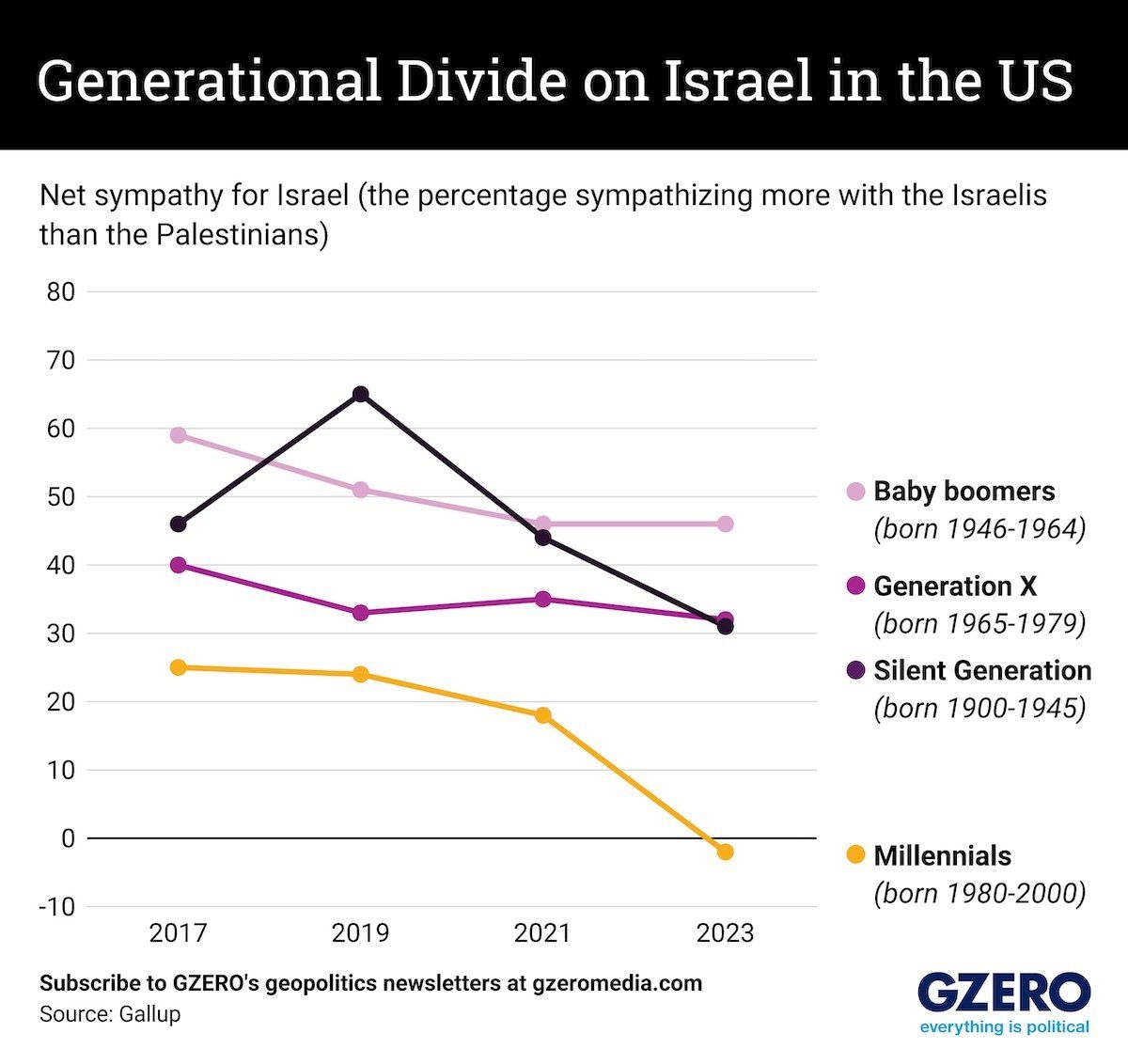December 04, 2023
The Israel-Hamas war has sparked heated debates and demonstrations across the US – particularly on college campuses – as the Palestinian death toll continues to rise. As many young people express pro-Palestinian sentiments in a country that has long supported Israel, pundits and commentators have blamed social media platforms like TikTok.
But what we’re seeing is also part of a long-term trend that points to a stark generational divide over the Arab-Israeli conflict. Polling from recent years shows that younger generations in the US have increasingly become more sympathetic toward Palestinians than Israel.
In 2017, Gallup polling found net sympathy toward Israelis versus Palestinians among millennials was at +25%. By March 2023, that had dropped to -2% among millennials. Comparatively, net sympathy for Israelis among older generations has held relatively steady and is much higher in general.
Similarly, a Pew Research Center poll from 2022 found only 41% of those aged 18-29 and 49% of those aged 30-49 had a favorable view of Israel, compared to 60% of those aged 50-64 and 69% of those aged 65 or older.
The generational divide is also evident among American Jews. A 2021 survey from the Jewish Electorate Institute, for example, found that younger US Jews were more likely than older Jews to agree with sharply critical statements about Israel. The survey showed that 43% of Jewish voters under 40 agreed that “Israel's treatment of Palestinians is similar to racism in the US," compared to 32% of Jewish voters between 40-64 and 27% of those older than 64.
Generational disagreement continues today. A recent Gallup poll found only 30% of Americans aged 18-34 approve of Israel’s military action in Gaza, compared to 50% of those aged 35-54 and 63% of those who are 55 and older.
More For You
- YouTube
China was largely absent from the core conversations at the 2026 Munich Security Conference. That, says Ian Bremmer, is telling.
Most Popular
- YouTube
At the 2026 Munich Security Conference, Brad Smith announces the launch of the Trusted Tech Alliance, a coalition of global technology leaders, including Microsoft, committing to secure cross-border tech flows, ethical governance, and stronger data protections.
When the US shift from defending the postwar rules-based order to challenging it, what kind of global system emerges? CFR President Michael Froman joins Ian Bremmer on the GZERO World Podcast to discuss the global order under Trump's second term.
TODAY at 12 pm ET: Watch our Global Stage live premiere from the Munich Security Conference
Feb 13, 2026
Tune in today at 12pm ET/6pm CET for the live premiere of our Global Stage from the 2026 Munich Security Conference, where our panel of experts takes aim at the latest global security challenges. NY Times National Security Correspondent David Sanger moderates the discussion with Benedetta Berti, Secretary General, NATO Parliamentary Assembly; Ian Bremmer, President & Co-founder, Eurasia Group & GZERO Media; Dr. Wolfgang Dierker, Global Head of Government Affairs, SAP; and Brad Smith, Vice Chair & President, Microsoft.
© 2025 GZERO Media. All Rights Reserved | A Eurasia Group media company.
